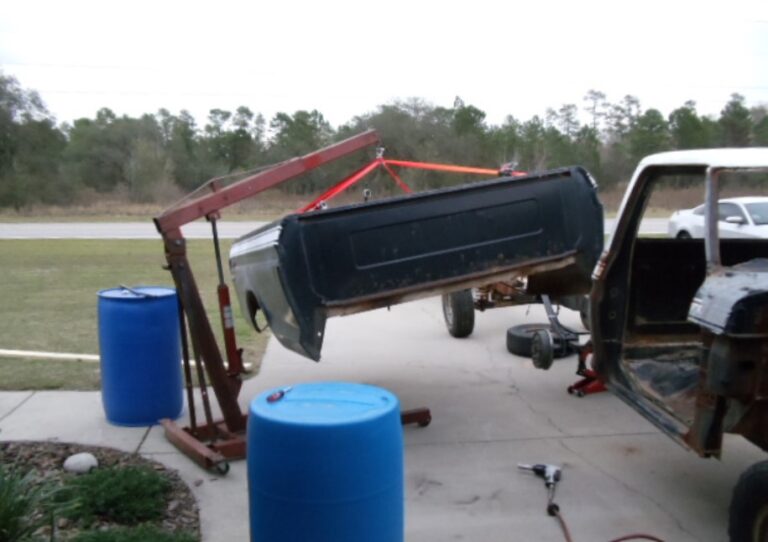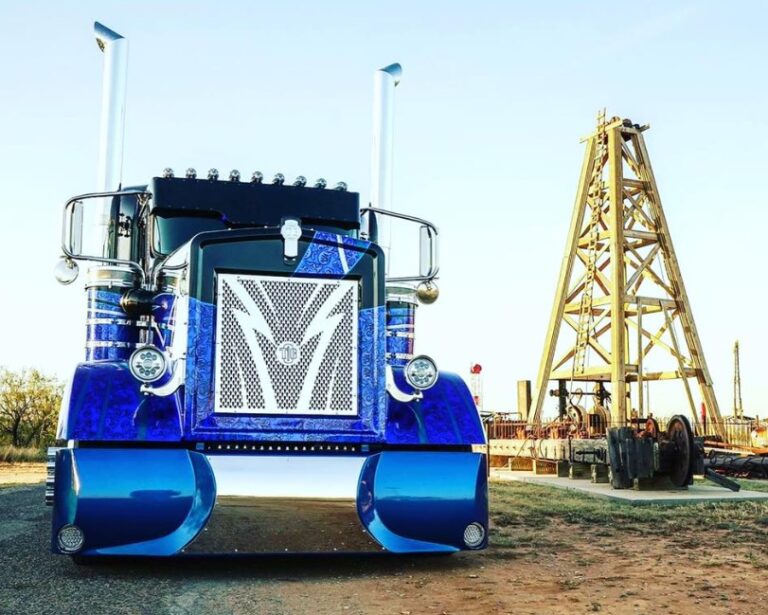Will A Deleted Truck Pass Inspection? Comprehensive Guide
In this article, we’ll explain Will A Deleted Truck Pass Inspection? This is a question that many truck owners find themselves asking, especially those who are considering modifying their vehicles.
The term “deleted” in this context refers to the removal or alteration of certain factory-installed components, such as the Diesel Particulate Filter (DPF) or the Exhaust Gas Recirculation (EGR) system. While these modifications can offer benefits like improved fuel efficiency and performance, they can also pose challenges when it comes to passing vehicle inspections.
Key Takeaways
- Jurisdiction Matters: Different states have different laws regarding vehicle inspections.
- Type of Deletion: The kind of modifications made to the truck can affect its eligibility for passing an inspection.
- Potential Penalties: Failing an inspection can result in fines or other penalties.
- Consult Professionals: Always consult with professionals before making any modifications to your vehicle.
- Check Local Laws: Always check the local laws and regulations before proceeding with any kind of vehicle modification.
Will A Deleted Truck Pass Inspection?
It depends, different jurisdictions have different laws and regulations concerning vehicle inspections. In some states, a deleted truck may pass without any issues, while in others, the modifications could lead to a failed inspection. It’s crucial to be aware of the laws in your specific jurisdiction before making any modifications to your vehicle.

What About EGR Deletion?
EGR, or Exhaust Gas Recirculation, is a technique used to reduce nitrous oxide emissions by recirculating some of the engine exhaust back through the engine cylinders.
While this may sound beneficial for reducing emissions, it has several downsides. The most significant is that it can lead to clogged intake systems due to excess soot, which not only reduces engine performance but can also result in costly repairs.

An EGR delete kit is an aftermarket performance part that removes the EGR valve and prevents exhaust from being redirected back to the engine. This can result in increased engine power, fuel efficiency, and a longer engine lifespan.
Types of Deletions and Their Impact
When it comes to modifying trucks, particularly diesel trucks, there are several types of deletions that owners often consider.
Each type of deletion has its own set of benefits and drawbacks, and understanding these can help you make an informed decision. Here are some common types of deletions and their impact:
DPF Deletion
Diesel Particulate Filter (DPF) Deletion involves removing the DPF, a component designed to capture and store exhaust soot to reduce emissions from diesel engines.
Benefits
- Improved fuel efficiency
- Increased horsepower
- Reduced maintenance costs
Drawbacks
- Increased emissions of particulate matter
- Potential to fail emissions tests
- Legal implications, including fines
EGR Deletion
Exhaust Gas Recirculation (EGR) Deletion involves removing or disabling the EGR valve, which redirects some exhaust gases back into the engine to reduce nitrogen oxide emissions.
Benefits
- Improved engine efficiency
- Increased horsepower
- Reduced engine heat
Drawbacks
- Increased nitrogen oxide emissions
- Risk of failing emissions tests
- Legal implications, including fines
DEF Deletion
Diesel Exhaust Fluid (DEF) Deletion involves removing or disabling the system that injects a urea-based solution into the exhaust stream to reduce nitrogen oxide emissions.
Benefits
- Reduced operating costs
- Improved fuel efficiency
Drawbacks
- Increased nitrogen oxide emissions
- Risk of failing emissions tests
- Legal implications, including fines
SCR Deletion
Selective Catalytic Reduction (SCR) Deletion involves removing the SCR system, which uses a catalytic converter to reduce harmful emissions.
Benefits
- Improved fuel efficiency
- Reduced maintenance costs
Drawbacks
- Increased emissions of various pollutants
- Risk of failing emissions tests
- Legal implications, including fines
Factors To Consider Before Deleting A Truck

Potential Penalties
Failing a vehicle inspection due to modifications like deletions can result in various penalties, ranging from fines to the revocation of your vehicle’s registration. In some extreme cases, legal action could be taken against the owner.
Consult Professionals
Before proceeding with any deletions or modifications, it’s advisable to consult professionals. They can provide insights into the potential risks and benefits, as well as the likelihood of passing or failing an inspection.
Check Local Laws
Always check the local laws and regulations concerning vehicle modifications and inspections. This will give you a clearer idea of what is permissible and what is not.
Additional Considerations for Deleted Trucks and Inspections

The Role of Federal Regulations
Federal regulations set the baseline for vehicle emissions and safety standards. While states have the freedom to impose stricter rules, they cannot be more lenient than federal guidelines.
If your deleted truck violates federal emissions standards, you may face penalties even if your state’s inspection doesn’t specifically check for the modifications you’ve made.
The Inspection Process: What to Expect
Visual Inspection
Some inspections include a visual check of the engine and exhaust system. If the inspector notices that key components like the DPF or EGR have been removed or altered, you may fail the inspection right away.
Functional Tests
In addition to visual checks, functional tests like OBD-II scans may be performed. These scans can detect whether emission control systems have been tampered with, leading to a failed inspection.
Risks of DIY Deletions
Performing deletions yourself or through unqualified mechanics increases the risk of failing an inspection. Poorly executed modifications can lead to mechanical issues, voided warranties, and even legal troubles.
Insurance Implications
Some insurance companies may void your coverage if they find out that you’ve made illegal modifications to your vehicle. This could leave you financially vulnerable in the event of an accident.
Resale Value and Future Inspections
Resale Challenges
Deleted trucks may face challenges in the resale market. Potential buyers might be wary of purchasing a vehicle that has been modified in a way that could make it difficult to pass future inspections.
Reverting Modifications
If you’re considering selling your truck or moving to a jurisdiction with stricter inspection requirements, reverting the deletions may be necessary. Keep in mind that this process can be costly and time-consuming.
How Can You Get The Deleted Truck Through The Emission Test?
Getting a deleted truck through an emissions test can be a challenging task. The key is to understand the specific requirements of the emissions tests in your jurisdiction. Some states may perform OBD-II scans that can detect tampering with emission control systems.

If you are considering an EGR delete, be aware that this could flag your vehicle during such scans. Always consult professionals and consider reverting the modifications temporarily for the test.
Why Do Vehicle Inspections Matter?
Vehicle inspections are crucial for maintaining road safety and environmental standards. They ensure that vehicles meet minimum safety requirements and adhere to emissions standards.
Failing an inspection can result in various penalties, including fines and the revocation of your vehicle’s registration. For deleted trucks, passing these inspections can be more challenging due to modifications that may not comply with state or federal regulations.
The Legal Implications Of Truck Deletion
Deleting truck components like the EGR valve can have legal implications. Federal regulations set baseline emissions standards, and states can impose additional rules but cannot be more lenient than federal guidelines.
Violating these can result in penalties, including fines and legal action. Moreover, insurance companies may void your coverage if they find out about illegal modifications, leaving you financially vulnerable.
Conclusion
In the end, whether a deleted truck will pass inspection is a complex issue that extends beyond state laws to include federal regulations, the specifics of the inspection process, and even the implications for insurance and resale. Always weigh the pros and cons carefully and consult professionals before making any modifications to your vehicle.
Frequently Asked Questions
Can a Deleted Truck Pass a DOT Inspection?
A DOT (Department of Transportation) inspection is a comprehensive check to ensure that the truck is safe to operate on the road. The inspection includes checking brakes, tires, and lights, as well as ensuring the truck has been properly maintained. If you’re considering deleting your truck, you’ll need to have a DOT inspection specifically for a deleted truck.
Will a Deleted Truck Pass Inspection in Texas?
In Texas, emissions inspections are required for vehicles registered in certain counties. If your truck has been deleted, meaning the engine has been modified to remove pollution control devices, it will not pass a Texas emissions inspection.
What Are DPF Delete Laws As of 2021?
DPF (Diesel Particulate Filter) delete laws vary from state to state. Some states allow for the legal removal of DPFs, while others do not. In states where DPF delete laws exist, there are typically restrictions on how and when the DPF can be removed.
Can You Pass Emissions with a Deleted Truck?
The ability to pass emissions tests with a deleted truck depends on several factors, including the type of delete kit installed and the state you live in. Some states are more lenient, while others are strict. PDF (Diesel Particulate Filter) delete kits will likely result in a failed emissions test.
Will a Deleted Diesel Pass Inspection in Pennsylvania?
In Pennsylvania, diesel engines are subject to the same emissions requirements as gasoline engines. Diesel-powered vehicles must be equipped with an after treatment device and a particulate filter. They must also undergo a specific type of emissions test called an opacity test.

Welcome to the exhilarating world of Matt Rex, a professional car racer turned renowned vehicle enthusiast. Immerse yourself in his captivating blog as he shares heart-pounding adventures, expert reviews, and valuable insights on cars, trucks, jets, and more. Fuel your passion for speed and discover the beauty of vehicles through Matt’s engaging stories and meticulous expertise. Join the ever-growing community of enthusiasts who find inspiration and expert advice in Matt Rex’s blog—a digital hub where the thrill of speed meets the pursuit of knowledge.







